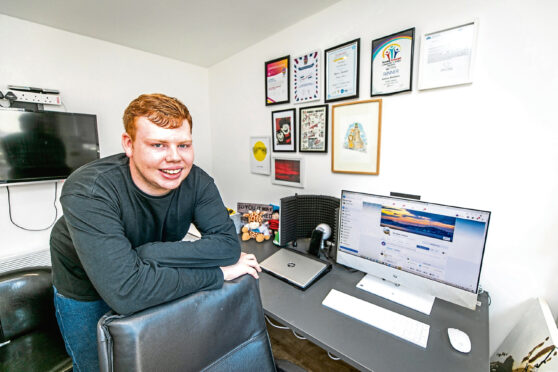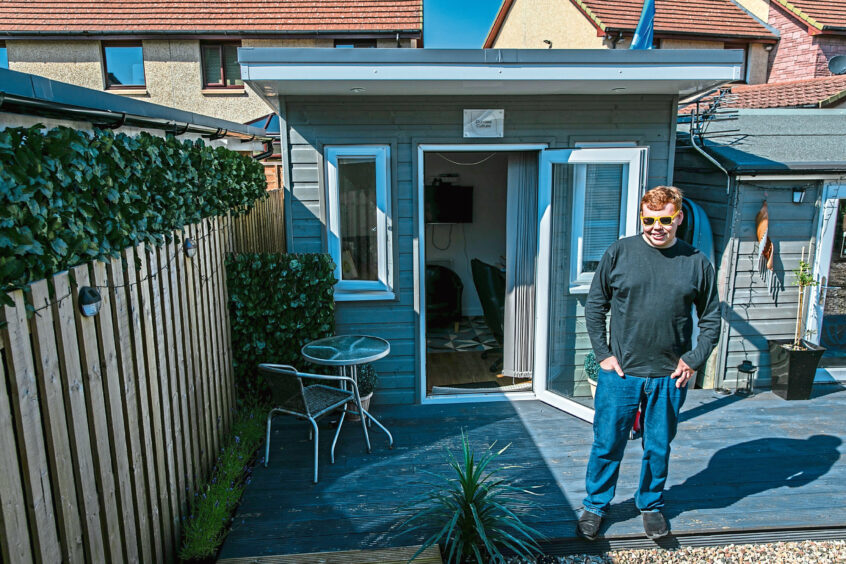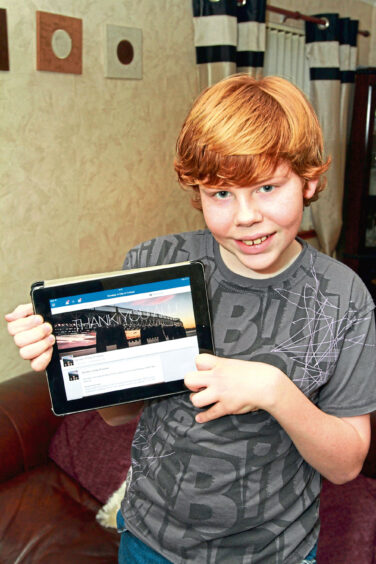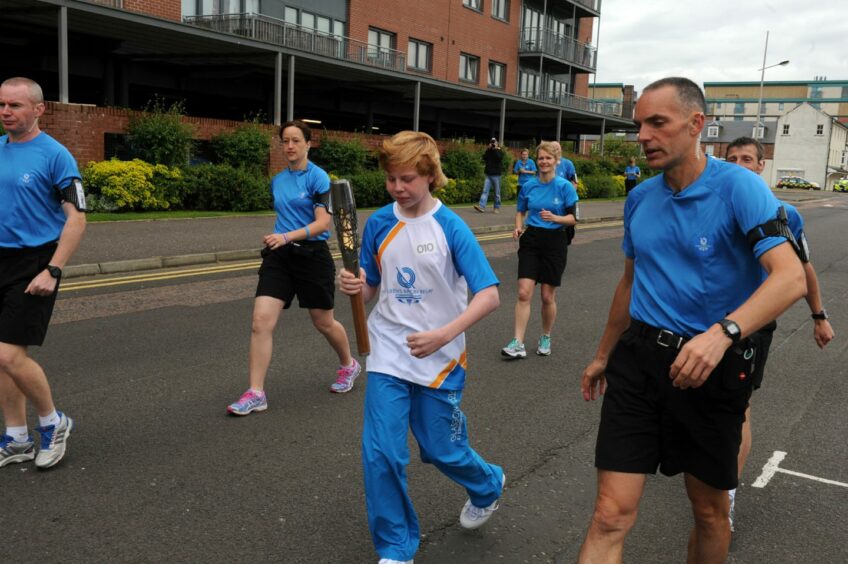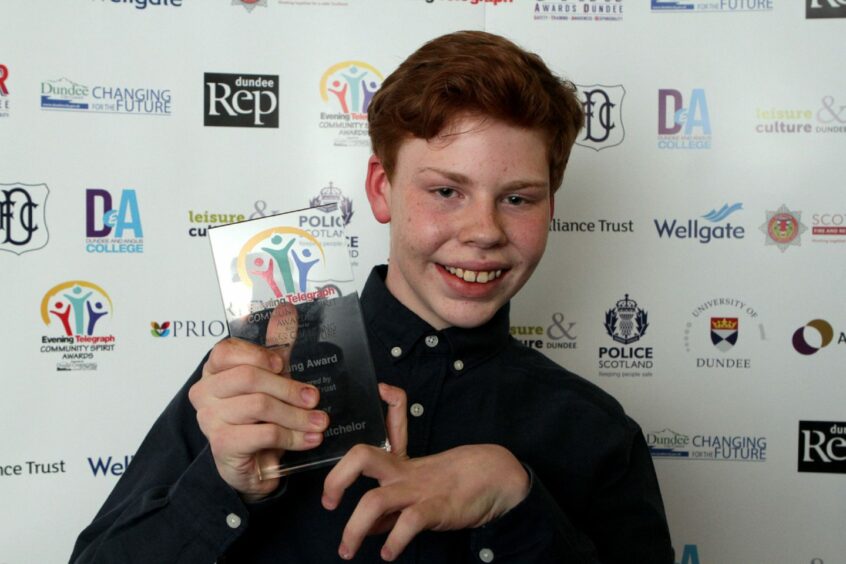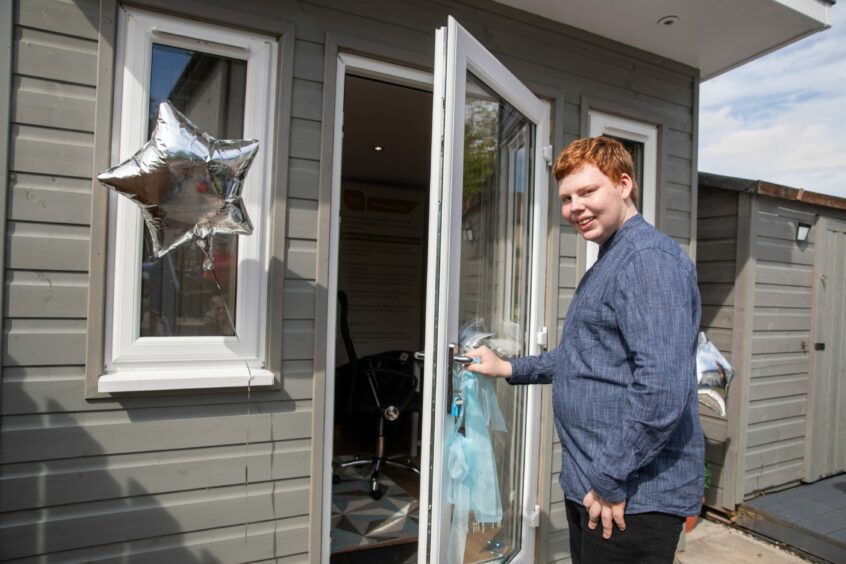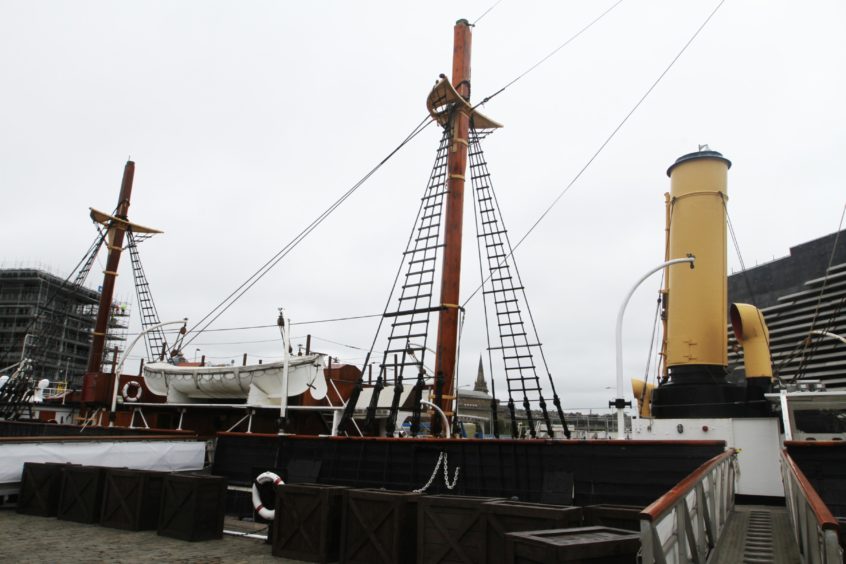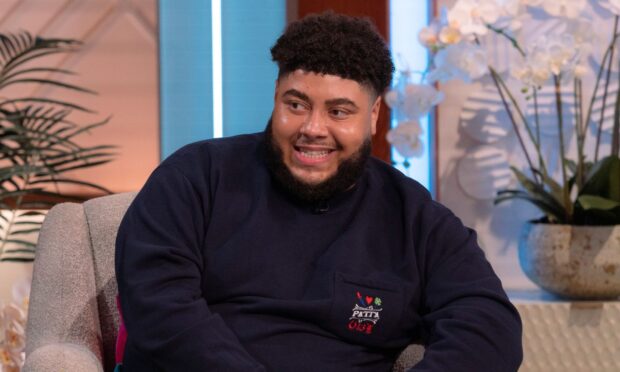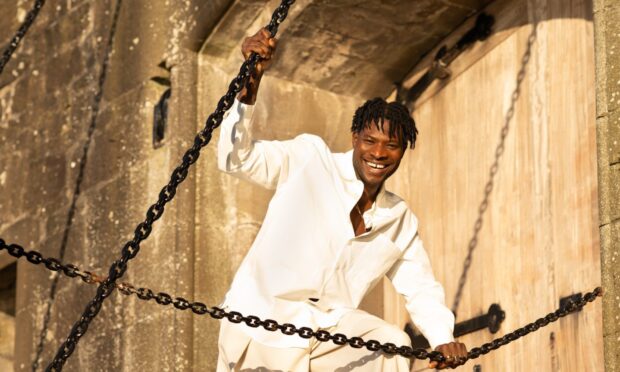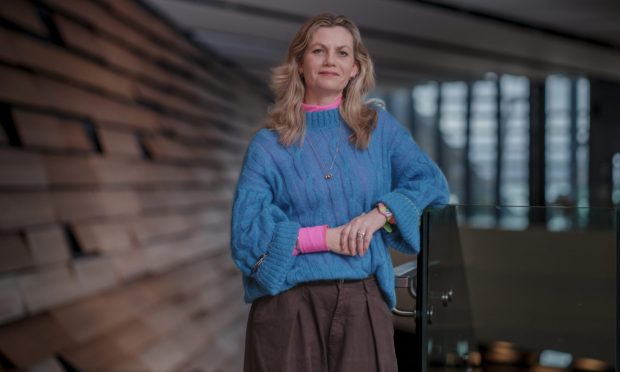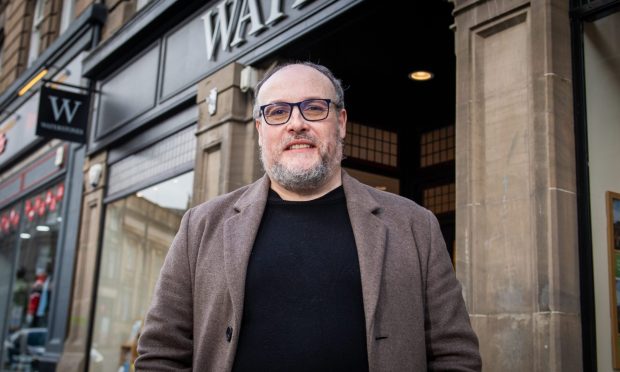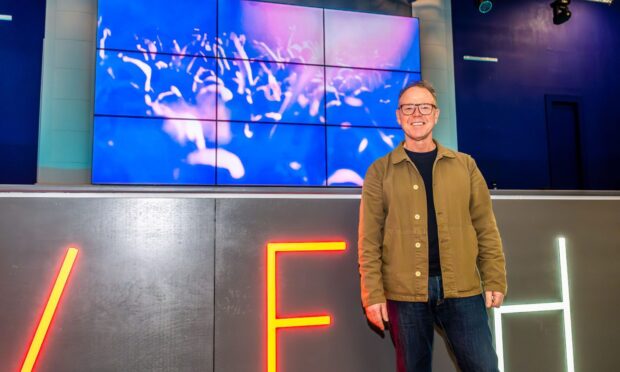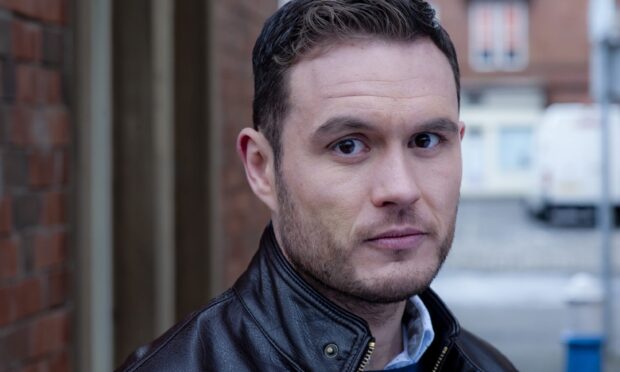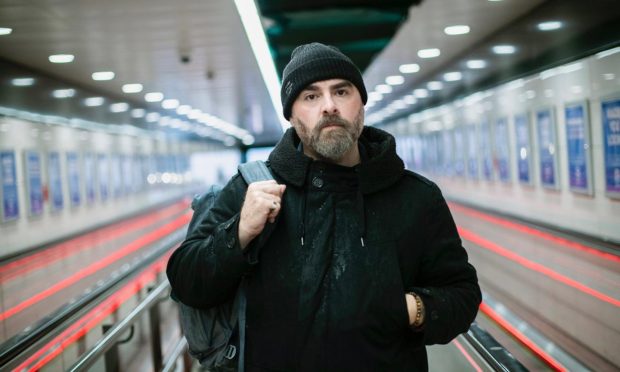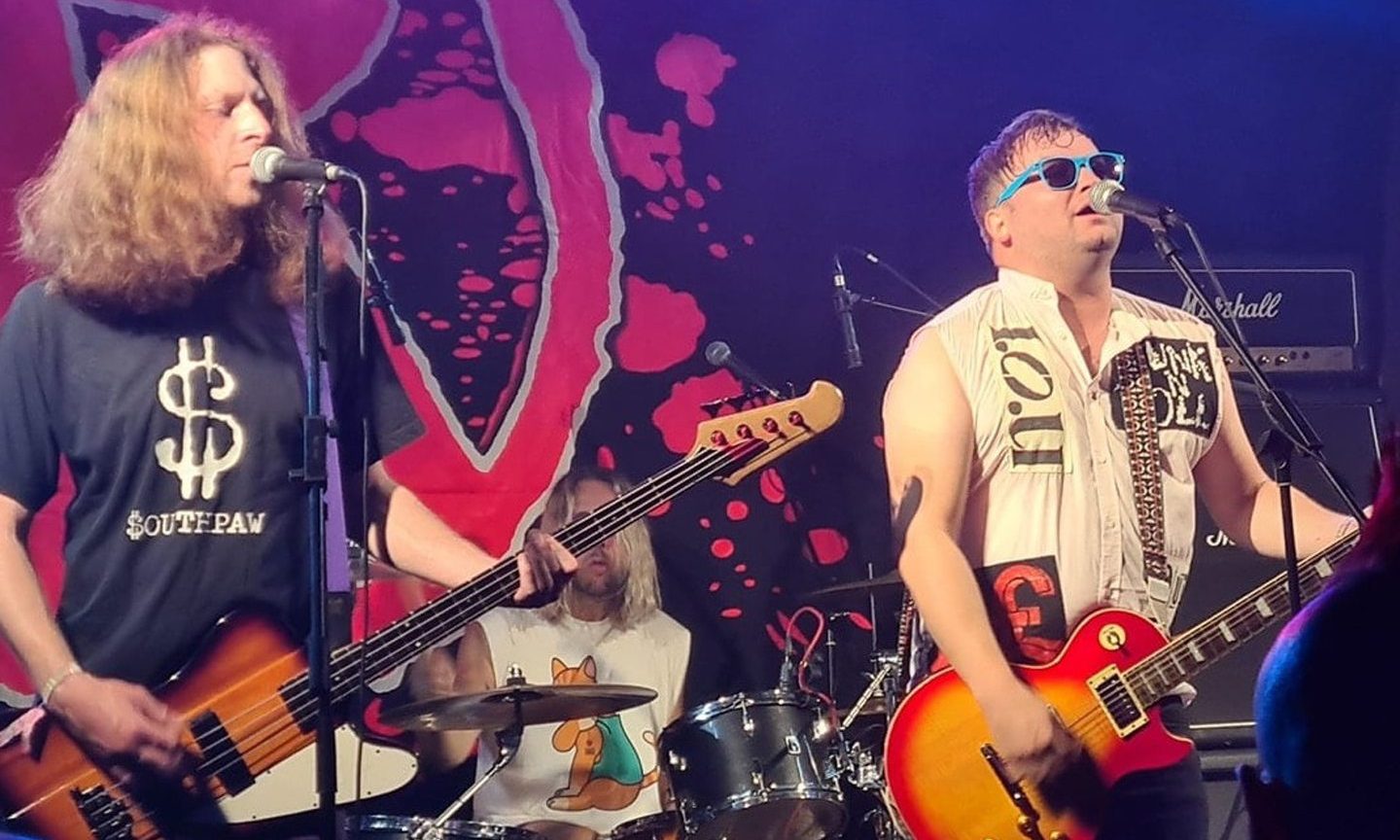Andrew Batchelor, who created the Dundee Culture social media channels aged just 12, shares his story of winning multiple awards, life with disabilities and how he deals with online trolls….
When Andrew Batchelor created a Facebook page to showcase Dundee’s cultural scene, he had no inkling that it would grow into a community with 25,000 followers and a spin-off podcast with 43,000 listeners.
Andrew was just 12 years old when he set up Dundee Culture in 2013, amid teasing from classmates who didn’t believe the city had much culture to shout about.
Since then he has won multiple awards, carried the baton during the Commonwealth Games relay, met Kate and William at the official V&A opening and was named as one of the top 10 youngest digital leaders in the UK by Digital Leaders.
He was also recently headhunted by Dundee Heritage Trust to become their new social media assistant.
Not bad for a boy whose parents were told he would never walk or talk!
Life with disabilities
Andrew was born with a number of conditions including autism, cerebral palsy, anxiety disorder, dyslexia, dyscalculia and clonus – a type of neurological condition that creates involuntary muscle contractions.
When he invites me round to his newly-built studio in Dundee to talk about his work, one of the things Andrew is keen to highlight is how disability shouldn’t be a barrier to achievement.
He could have easily become discouraged and given up – as a child he was bullied due to his disabilities, found it impossible to get a job for a long time after leaving school and has had to put up with online “trolling” since starting Dundee Culture.
Support for his work
Now aged 20, Andrew comes across as a confident young man who is more determined than ever to succeed, yet he is also humble and appreciative of the support he has received.
“I always say to people that I’m so thankful for their support, I really don’t take it for granted,” he says. “My followers are my driving force. Without them Dundee Culture wouldn’t exist. I still can’t believe how it’s taken off – when I started, I was just hoping for maybe 50-60 followers, I had no idea it would become this big.”
“My followers are my driving force. Without them Dundee Culture wouldn’t exist.
Andrew’s idea for Dundee Culture came to him when the city was bidding to become City of Culture 2017. He had always had an interest in what was going on locally as he regularly visited the city’s museums with his aunt, who instilled in him a passion for his home town.
“I had just started to use Facebook and I set up a page in support of Dundee’s bid, as I didn’t think a lot of people knew about it at the time,” Andrew explains.
UK City of Culture
“My page was initially called Dundee UK City of Culture 2017. I never really thought it would get off the ground, but by the time the result of City of Culture was announced, I had 1,000 likes.
“I thought, ‘oh my goodness’. For someone who was only 12 at the time, to have that number of followers was amazing.
“I originally planned to stop running the page when the bid ended, thinking that would be my job done. But people were saying they wanted more, so I carried on. I started to promote Dundee’s culture scene as a whole.
UNESCO City of Design
“I promoted Dundee when it was named Unesco City of Design and that’s when I started to get a lot of media interest. By that point I had around 2,000 followers and my channel was steadily growing.”
In 2014 Andrew gained further publicity when he was selected to be involved in the Queen’s Baton Relay, running with the baton past HMS Unicorn. He was also a finalist in the Evening Telegraph’s Community Spirit Awards.
“I was so overwhelmed – that’s when I thought, this is actually getting serious. At that time I was still at school and my work for Dundee Culture started to seep into my school life. A lot of my classmates made fun of me for doing what I was doing. They said the city was rubbish and full of drug addicts.
Beating the bullies
“Some of the teachers were coming up to me to say they’d seen me featured in the local papers, and the people sitting next to me would laugh.
“Whilst I do acknowledge that Dundee has some big problems, I didn’t let the negative comments affect me. I just told myself, ‘don’t let anybody drag you down, just keep doing what you’re doing!’.”
Over the years Dundee Culture grew and grew, receiving a further boost during the Year of Young People in 2018.
I just told myself, ‘don’t let anybody drag you down, just keep doing what you’re doing!’.
Andrew created a project to showcase Dundee’s inspirational young people, such as local tennis prodigy Jed Alexander, who was 17 at the time and was selected to join the Good to Great youth tennis school, one of the most renowned of its kind in the world.
Andrew also helped publicise the story of Chelsea Cameron, a teenager who wrote an open letter to her parents who struggled with drug addiction.
Gaining recognition
“I wanted to make the voices of Dundee’s young people heard,” Andrew enthuses. “That project led me to be nominated for the Young Scot award and I got to be a finalist. I also won the Dundee Inspire award.
“That led to a meeting with the CEO of Independent Living Fund Scotland, who help people with disabilities after they leave school. I told them all about Dundee Culture.
“At that time I didn’t have a proper space to work from, I was just working in my bedroom or the living room but I really wanted my own studio. They encouraged me to apply for a grant and in 2019 I won the funding, which allowed my family to build a studio in our garden. We had a little opening party and I got to thank the people who helped me.
Pandemic challenges
“It’s perfect for me because it’s my own space where I can focus and be independent, but the house is near if I need anything.”
It was especially important for Andrew to have this space during the pandemic, when his family were working from home and the house felt crowded.
Although there were few cultural events while life was on standby during the lockdowns, Andrew still kept Dundee Culture going, updating his followers on any online events being organised or community initiatives such as food deliveries to vulnerable people.
A positive vibe
“I wanted to keep people up to date with what was going on but I wanted to do it in a way that had a positive vibe, even when bad things were happening,” he says. “It kept my spirits up, because during the pandemic I couldn’t get out and about to events like I had been doing before.”
It was during that time that Andrew’s work was noticed by Dundee Heritage Trust, which approached him about doing some paid work for the trust.
It was his first ever job offer, having left school at 17 after a collapse during an exam and subsequently struggling to get into apprenticeships.
New opportunities
“Doing social media for a cause that’s close to my heart is amazing and it’s really improved my confidence,” said Andrew.
“When I was born my mum and dad were told I’d never be able to walk and talk, and when they tell me that story it makes me determined to show people that actually, people with disabilities can do things. We can work and we can create things – there are no limits.
“My family is what motivates me. Mum and dad keep saying I’m a local celebrity. People in the street stop me and recognise me as ‘the guy that does Dundee Culture’.
“Autism is my superpower”
“It’s kind of strange but also amazing. Not many people get to do what I do and I often think, ‘is this really happening to me?’ Growing up, some kids made fun of my disabilities, for example they would slap their hand, making fun of my cerebral palsy. But these people were no loss to me.
“Even now I still get some negativity. Trolls started to become an issue when Dundee Culture grew. I would get messages saying I wasn’t doing it right and to just stop. But the support I’ve had overshadows that. I just brush off the negativity.
“I feel like my autism actually helps me because it makes me super-focused and has helped me drive forward with Dundee Culture. I feel like my autism is my superpower.”
